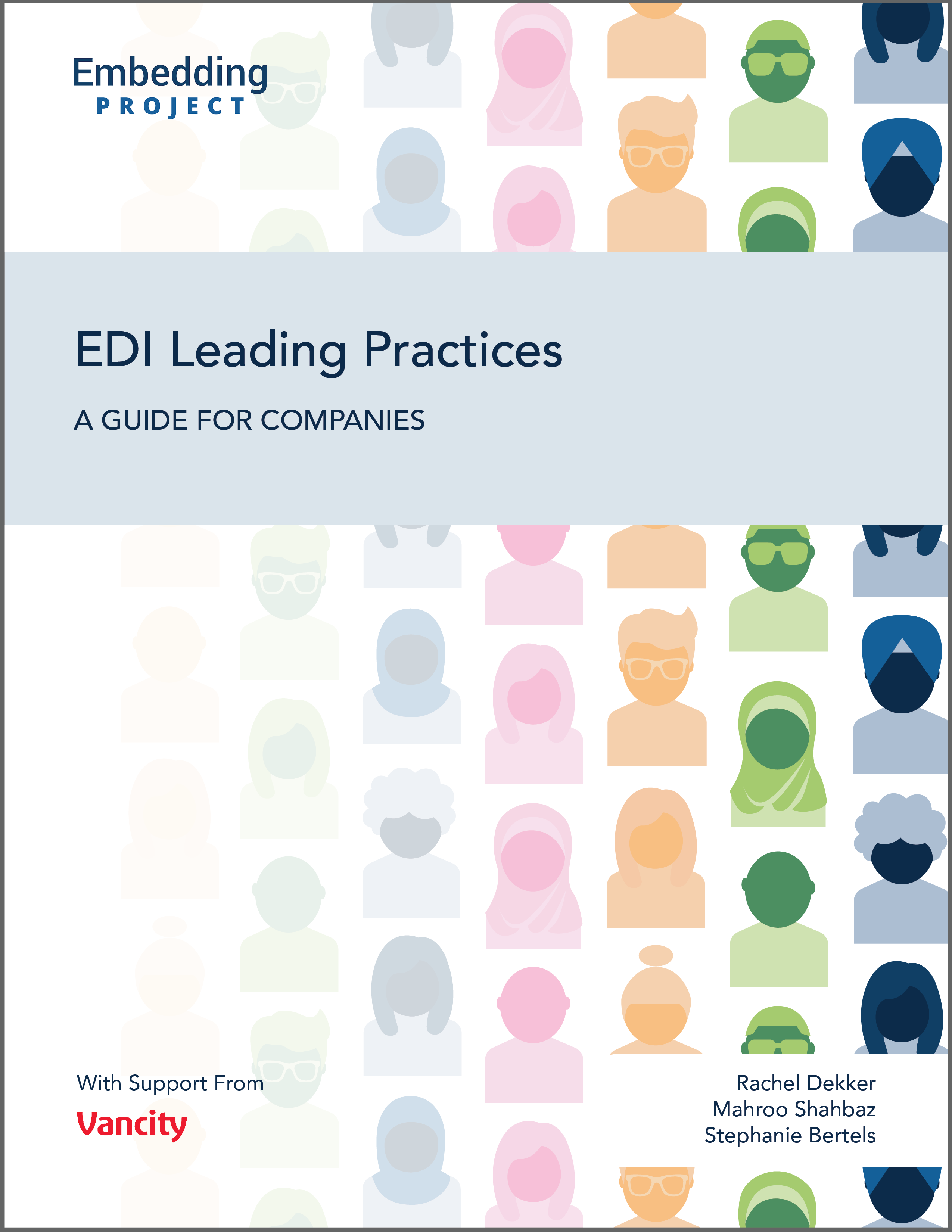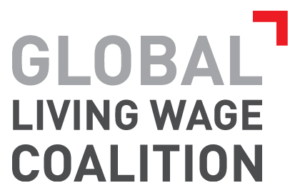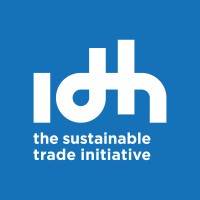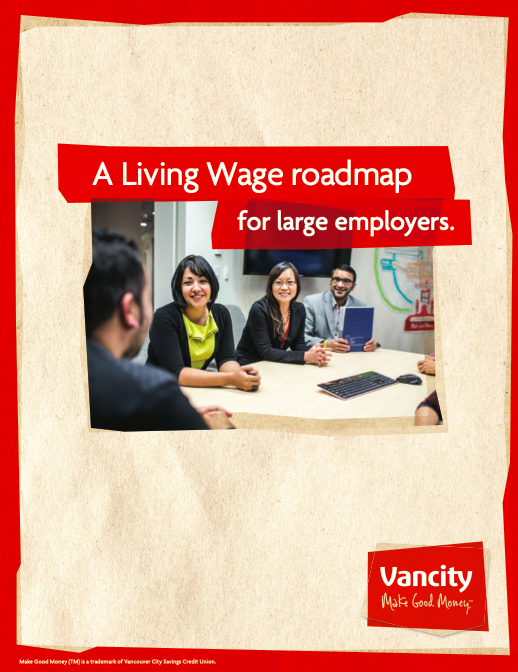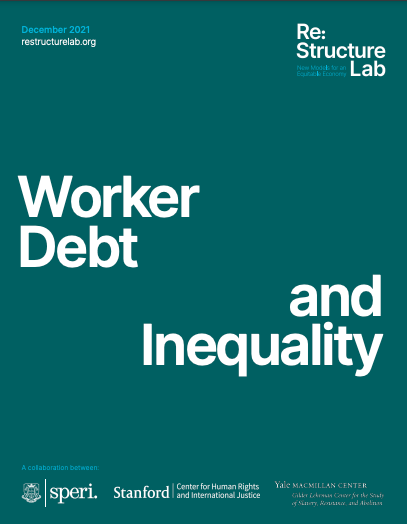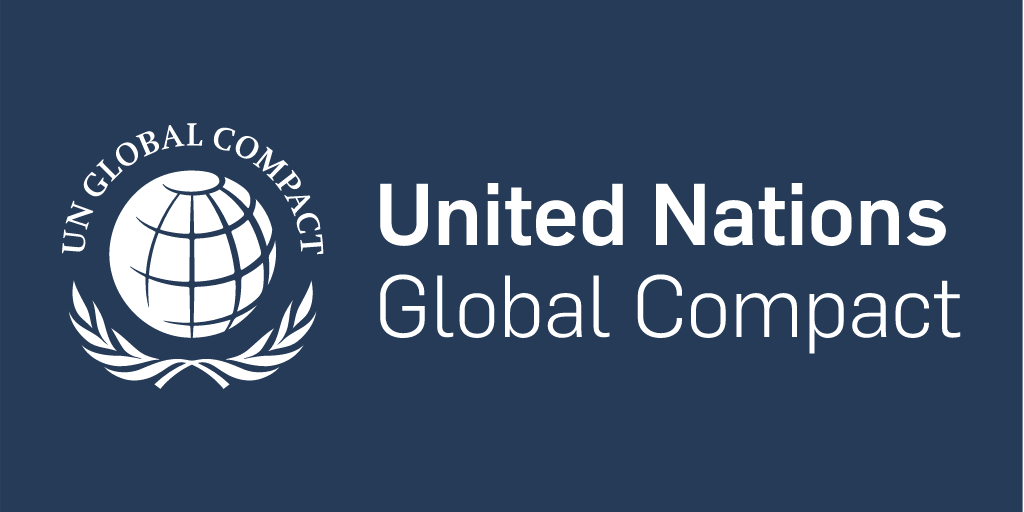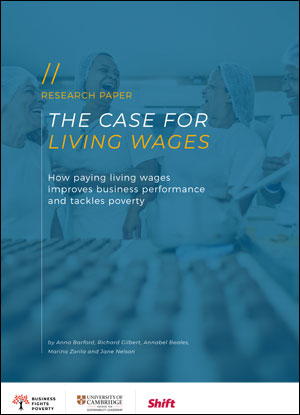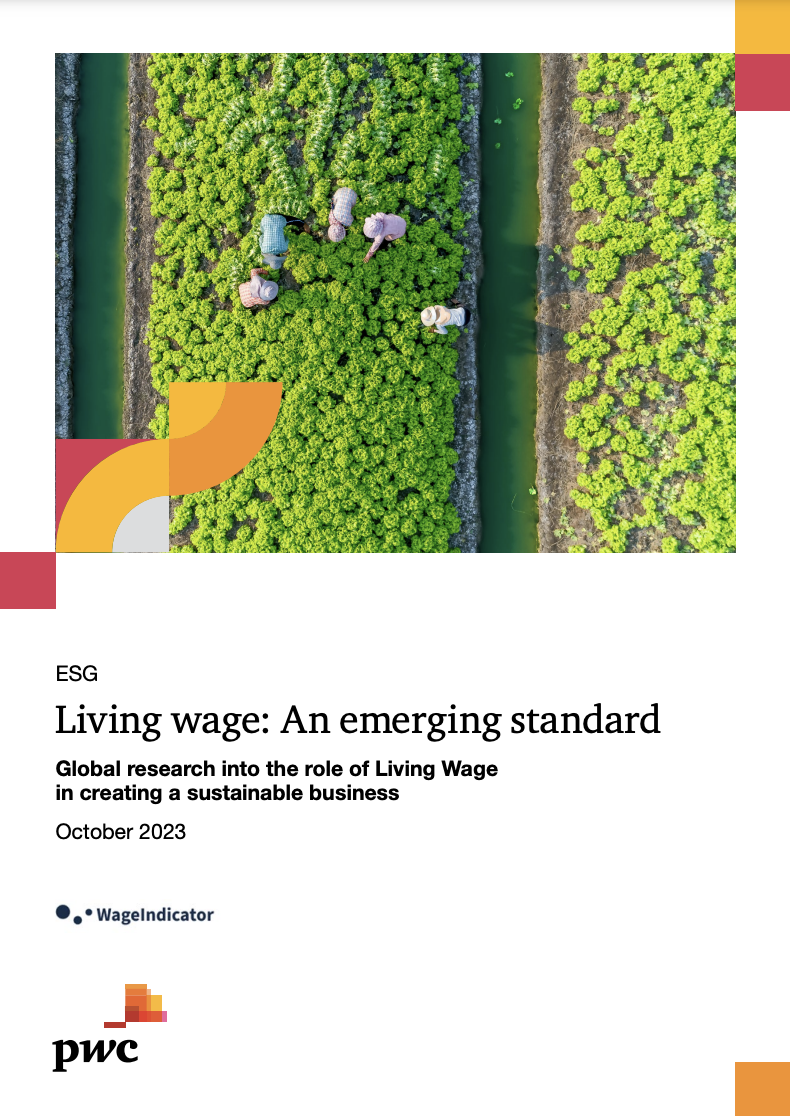Decent Work/Income and Work-Life Balance
Description
The company compensates workers fairly and transparently and pays a living wage to ensure workers are able to meet their basic needs and can afford a decent standard of living for their family without needing government support. The company offers equal pay for equal work, facilitates access to anonymised compensation data for the purposes of benchmarking, and does not negotiate compensation down based on an applicant’s previous salary. As part of its compensation package, the company helps ensure its workers can enjoy adequate paid time off. For employees not able to work flexible hours, the company sets predictable working hours and rotation schedules, with adequate notice of changes. Wages are paid on a predictable schedule to support worker financial planning and timely payment of commitments.
Share this Subissue on:LinkedIn
Resources
EDI Leading Practices: A Guide for Companies
Workplace equity, diversity, and inclusion (EDI) is a complex and rapidly evolving space, and increasingly, companies are interested in understanding how to meaningfully advance EDI in their organisations. To help them do so, we consulted EDI research and guidance, reviewed practices of over 100 companies, and sought input from practitioners across a range of industries and geographies. Our Equity, Diversity, and Inclusion Leading Practices Guide offers a comprehensive framework with practices, case studies, and resources to help organisations embed EDI into their strategy, structures, and culture.
Global Living Wage Coalition
The Global Living Wage Coalition (GLWC) is a partnership between two independent networks with complementary missions and work: the Anker Living Wage and Income Research Institute (Anker Research Institute) and the GLWC Action Network (Action Network). They provide a comprehensive explanation of the Anker Methodology for measuring a living wage, and they have compiled a broad range of case studies for living wage implementation.
Roadmap on Living Wages
IDH, The Sustainable Trade Initiative, has created this platform to help you take tangible steps towards aligning your company's compensation with international living wage standards. The platform introduces a 5-step approach: identify the living wage; measure living wage gaps; verify calculations of gaps; close living wage gaps; and share learnings. For each step you will find primers, FAQs, and tools - such as benchmarks and auditor guidelines - to help you progress through the process.
The Living Income Community of Practice
The Living Income Community of Practice is a partnership between The Sustainable Food Lab, GIZ, and ISEAL. Their goal is to support activities that help smallholder farmers achieve a living income and a decent standard of living. The resources on this platform can help you to understand the difference between a living wage and a living income; understand and calculate living and actual incomes; and identify and discuss strategies for closing the income gap.
A Living Wage Roadmap for Large Employers
This guide from Vancity explores their journey towards becoming a certified Living Wage Employer (LEW). It includes details of their 7-step process, identifies leads for spearheading each phase, and lays out the timeline for Vancity's LEW journey. The tangible and actionable content in this guide will especially benefit business leaders, change agents, and procurement personnel who are ready to advance from embracing LEW in principle to enacting it in practice.
The Platform Living Wage Financials (PLWF)
The Platform Living Wage Financials (PLWF) is a coalition of investors supporting the payment of living wages in their investee companies and associated value chains. Their work - including a living wage assessment methodology - can help your company measure and monitor progress on living wages across your operations and value chain. Their living wage assessment guidance document would be of particular benefit to sustainability and supply chain management teams tasked with supporting the implementation of living wages.
Worker Debt and Inequality
This brief from Re:Structure Lab can help you to better understand how worker debt has become a critical, consistent element of business models configured around forced labour and human trafficking. The brief explains how supply chain workers are routinely paid at or below the minimum wage, oftentimes owing to wage theft, fraudulent deductions, predatory fees, and inadequate legal protection. It also explores solutions for addressing worker debt and inequality, such as alternative forms of corporate accountability mechanisms; reparations for historical injustice; debt relief; and more.
Living Wage Analysis Tool
The UN Global Compact has created this free tool to help you identify actions and further opportunities for your company to provide a living wage. The tool showcases good practices for ensuring a living wage in business operations and supply chains, and features questions based on real-life company practices and international standards and indicators. This tool is a good starting point for assessing current policies and programmes, highlighting areas for improvement, and identifying opportunities to set future corporate goals and targets.
The Case for Living Wages: How Paying Living Wages Improves Business Performance and Tackles Poverty
Too many business continue to see living wages as a burden and challenge rather than an opportunity. This paper from Business Fights Poverty, CISL, and Shift explains the benefits that living wages provide to businesses and investors, including within core operations, value chains, and the wider operating environment. This resource can help you to better understand the need for a living wage (both for workers and firms), and features recommendations, key questions, and a five-step approach that can help your company to take action.
Achieving the Living Wage Ambition: Reference Sheet and Implementation Guidance
This accessible guide from the UN Global Compact can help you to successfully implement a living wage programme. Part of the UN Global Compact SDG Ambition Accelerator Initiative, the Living Wage Ambition encourages companies to provide and promote a living wage as an essential aspect of decent work to ensure all workers, families, and communities can live in dignity. This guide outlines the Ambition; identifies companies that are taking credible action; and provides a step-by-step roadmap for implementation, including an overview of the key organisational structures, processes, and strategies needed to implement a living wage programme.
Improving Wages to Advance Decent Work in Supply Chains
This interactive resource from the UNGC is an excellent primer on the topic of decent wages in the supply chain. It explains the context of living wage discussions; explains the rationale for businesses to take action on wages in their supply chains; explains the factors that have combined to keep these wages low; and more. This resource also provides guidelines on concrete steps that your company and your suppliers can take to improve wages globally.
Effective wage auditing to advance living wage action: Research briefing to inform practice
This report from ISEAL an help you better understand the wage auditing landscape. The first section outlines the key challenges around wage auditing and verification related to both internal practices as well as external standards and audit protocols. The second section highlights emerging best practice related to wage auditing.
Living wage: An emerging standard
Although the subject of fair pay has received a marked increase in attention, few businesses have mature practices in place to ensure workers receive a living wage. This brief report by PwC and the WageIndicator Foundation can help you understand the challenges and opportunities related to paying a living wage at a global scale. Based on a survey of 205 participants from companies around the world, it covers the emerging expectation around living wages, key challenges, key drivers, associated trends, and next steps. This report will be most useful to sustainability and supply chain practitioners.
Guide to developing balanced working time arrangements
This guide from the International Labour Organisation (ILO) can help you create balanced and healthy work schedules for employees. It provides a set of five guiding principles for developing work schedules that are healthy, productive, family-friendly, and more. It offers practical tips on how to structure different types of working time arrangements, and outlines a four-step process for designing and implementing work schedules.
Base code clause 6: working hours are not excessive
This resource from the Ethical Trading Initiative (ETI) can help you better understand what it means to align working hours with the International Labour Organisation conventions (ILO). The code includes six standards on the limits to working hours, a list of resources, and a summary of relevant ILO conventions. It also includes a detailed FAQ section providing further clarity on ETI’s standards. This resource will be most useful to HR and supply chain management teams.
Decent Working Time: Balancing Workers’ Needs with Business Requirements
This resource from the International Labour Organisation (ILO) provides a framework for policies and practices that can help you to advance the goal of decent work in the area of working time. It introduces and explains five dimensions of "decent working time," including healthy working time, family-friendly working time, gender equality through working time, productive working time, and choice and influence regarding working time. It also provides tangible and practical actions that your company can take immediately to advance these dimensions.
Upholding the Human Right to a Living Wage is Essential for Business
In this blog post we explore the human right to a decent living to help you to understand why it is relevant for companies and how you can get started on your living wage journey.
7 Ideas to Help Embed Sustainability in Your HR Life Cycle
In this blog post we delve into the ways that Human Resources teams can support the sustainability objectives of your company by integrating sustainability into every part of the HR life cycle. We include key resources for Human Resources teams to develop and manage an inclusive, sustainability-driven workforce.
How to Pay Living Wages
This detailed case study from the Post Growth Guide can help you understand how to pay a living wage. The guide follows the methodology used by a company that makes beaded jewellery in Guatemala. Although the company is small, it provides a practical example of the process and key considerations that are broadly applicable at the manufacturing level. This includes how the company defines a living wage and how it calculates a piece rate living wage. This resource will be most useful to sustainability and supply chain management teams, especially those whose organisations make use of labour-intensive production in low wage regions.
